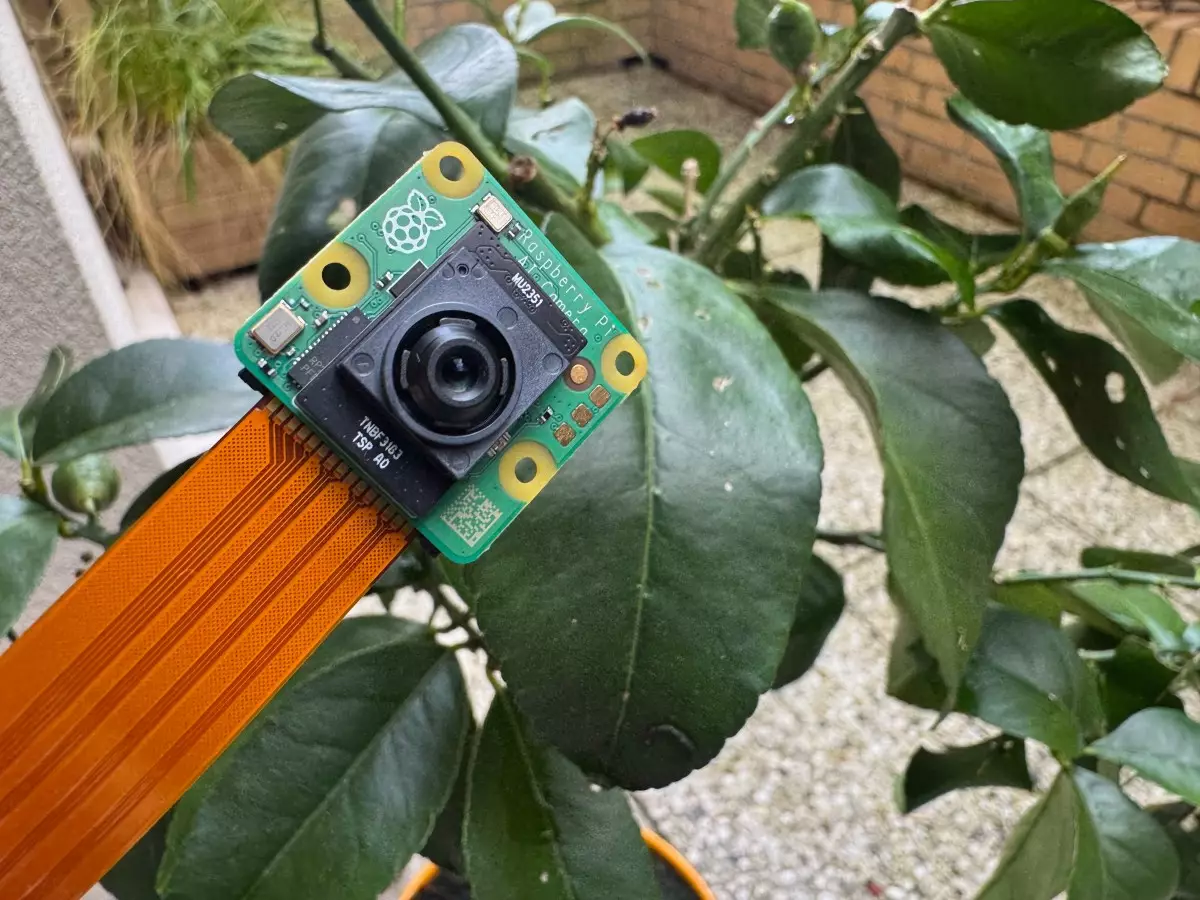Raspberry Pi has long been celebrated for its accessible and affordable computing solutions aimed at both hobbyists and educational sectors. With the introduction of its latest product, the Raspberry Pi AI Camera, the company is venturing into new territories that leverage artificial intelligence for practical applications. This innovative add-on is designed to enhance the capabilities of Raspberry Pi’s ecosystem, allowing users to deploy intelligent image processing without the hefty investment usually associated with AI technology.
At the heart of the Raspberry Pi AI Camera is the advanced Sony IMX500 image sensor that boasts high-quality imaging capabilities. Coupled with Raspberry Pi’s RP2040 microcontroller, which is specifically designed for efficiency and cost-effectiveness, the AI Camera offers an optimal combination for on-device image processing. The camera module is compact, measuring 25mm x 24mm, which facilitates easy integration into various devices and applications. However, its slightly increased thickness, attributed to its optical sensor structure, is a small trade-off for the advanced functionality it brings.
Raspberry Pi has ensured that the AI Camera is user-friendly right out of the box, as it comes pre-loaded with the MobileNet-SSD model, an object detection framework capable of real-time processing. This integration means that users do not need extensive technical knowledge to get started with AI applications; the camera can commence operation immediately upon installation.
The market for embedded vision systems has been expanding dramatically, and the Raspberry Pi AI Camera positions itself as a compelling, budget-friendly option for businesses. Early adopters of Raspberry Pi have primarily consisted of tech enthusiasts and makers, but as the company transitions to cater to industrial applications, the AI Camera stands to gain significant traction among businesses seeking to innovate.
Imagine a smart city infrastructure leveraging these cameras to monitor parking availability in real time, reducing the time drivers spend searching for spaces and thereby minimizing traffic congestion. In industrial settings, the AI Camera could facilitate automated quality control processes by monitoring production lines and identifying defects or irregularities in products as they advance under the lens. By implementing these smart vision systems, businesses can gain efficiencies and save costs while ensuring better quality standards.
One of the primary reasons businesses are inclined to use Raspberry Pi products is the company’s commitment to reliable production and supply chain management. Following the disruptions faced during the COVID-19 pandemic, Raspberry Pi has demonstrated resilience in its manufacturing processes, ensuring that its products, including the AI Camera, are consistently available and can scale effectively to meet demand. In fact, the company guarantees production of the AI Camera at least until January 2028, instilling confidence in businesses that depend on these modules for their operations.
Furthermore, the affordability of $70 for the AI Camera is a significant advantage over more traditional solutions that require costly AI accelerators. This price point opens the door for numerous startups and businesses to incorporate AI without the significant upfront investment often required in the sector.
As the Raspberry Pi AI Camera hits the market, it symbolizes a broader movement towards integrating AI capabilities into consumer technology. As companies increasingly recognize the value of AI for enhancing efficiency and functionality, products like the AI Camera will likely spur further innovation in various sectors, including agriculture, healthcare, and smart home systems. With Raspberry Pi’s legacy of fostering educational initiatives and enabling creativity, it is poised to catalyze the next generation of tech enthusiasts and professional developers to explore the frontiers of AI.
Ultimately, the Raspberry Pi AI Camera not only expands the horizons for Raspberry Pi products but also reflects the evolving landscape of technology where affordability and accessibility are no longer barriers to entry for advances in AI. As the potential for intelligent image processing applications expands, the AI Camera will undoubtedly play a pivotal role in shaping the future of embedded vision solutions.

